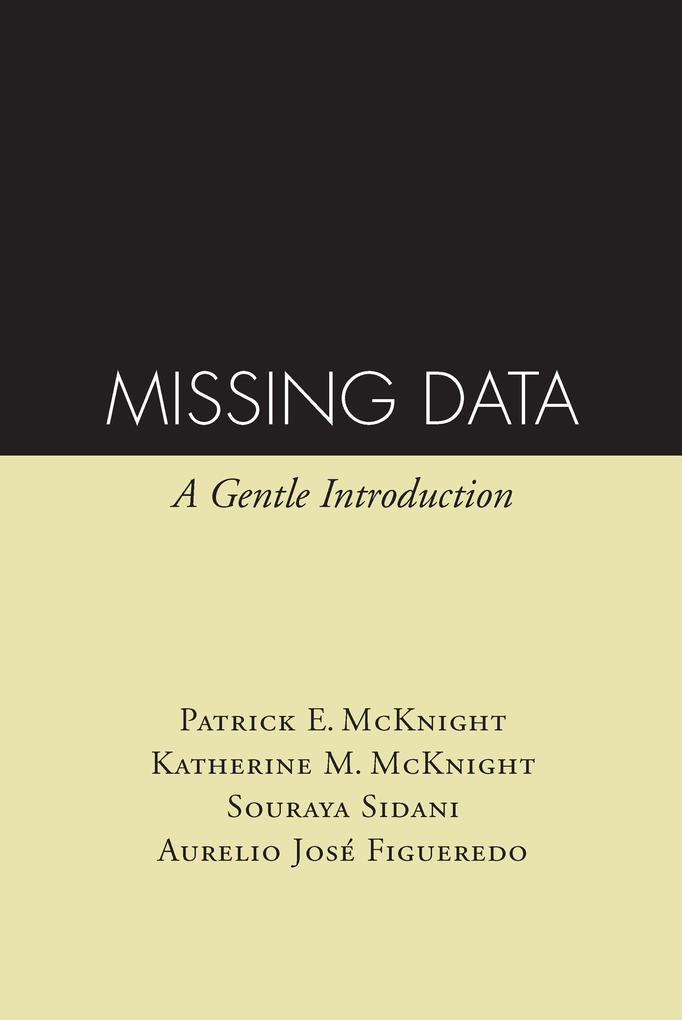Bücher versandkostenfrei*100 Tage RückgaberechtAbholung in der Wunschfiliale

Zustellung: Di, 24.06. - Sa, 28.06.
Versand in 2 Wochen
VersandkostenfreiBestellen & in Filiale abholen:
While most books on missing data focus on applying sophisticated statistical techniques to deal with the problem after it has occurred, this volume provides a methodology for the control and prevention of missing data. In clear, nontechnical language, the authors help the reader understand the different types of missing data and their implications for the reliability, validity, and generalizability of a study's conclusions. They provide practical recommendations for designing studies that decrease the likelihood of missing data, and for addressing this important issue when reporting study results. When statistical remedies are needed--such as deletion procedures, augmentation methods, and single imputation and multiple imputation procedures--the book also explains how to make sound decisions about their use.
Inhaltsverzeichnis
Part 1. A Gentle Introduction to Missing Data. The Concept of Missing Data. The Prevalence of Missing Data. Why Data Might Be Missing. The Impact of Missing Data. What's Missing in the Missing Data Literature? A Cost-Benefit Approach to Missing Data. Missing Data - Not Just for Statisticians Anymore. Part 2. Consequences of Missing Data. Three General Consequences of Missing Data. Consequences of Missing Data on Construct Validity. Consequences of Missing Data on Internal Validity. Consequences on Causal Generalization. Summary. Part 3. Classifying Missing Data. "The Silence That Betokens". The Current Classification System: Mechanisms of Missing Data. Expanding the Classification System. Summary. Part 4. Preventing Missing Data by Design. Overall Study Design. Characteristics of the Target Population and the Sample. Data Collection and Measurement. Treatment Implementation. Data Entry Process. Summary. Part 5. Diagnostic Procedures. Traditional Diagnostics. Dummy Coding Missing Data. Numerical Diagnostic Procedures. Graphical Diagnostic Procedures. Summary. Part 6. The Selection of Data Analytic Procedures. Preliminary Steps. Decision Making. Summary. Part 7. Data Deletion Methods for Handling Missing Data. Data Sets. Complete Case Method. Available Case Method. Available Item Method. Individual Growth Curve Analysis. Multisample Analyses. Summary. Part 8. Data Augmentation Procedures. Model-Based Procedures. Markov Chain Monte Carlo. Adjustment Methods. Summary. Part 9. Single Imputation Procedures. Constant Replacement Methods. Random Value Imputation. Nonrandom Value Imputation: Single Condition. Nonrandom Value Imputation: Multiple Conditions. Summary. Part 10. Multiple Imputation. The MI Process. Summary. Part 11. Reporting Missing Data and Results. APA Task Force Recommendations. Missing Data and Study Stages. TFSI Recommendations and Missing Data. Reporting Format. Summary. Part 12. Epilogue.
Produktdetails
Erscheinungsdatum
01. April 2007
Sprache
englisch
Seitenanzahl
251
Autor/Autorin
Katherine M McKnight, Patrick E McKnight, Souraya Sidani, Aurelio José Figueredo
Verlag/Hersteller
Produktart
gebunden
Gewicht
476 g
Größe (L/B/H)
229/164/23 mm
ISBN
9781593853945
Pressestimmen
"This book is full of useful information about methodological and statistical issues related to missing data. It includes clear definitions of types of missing data, ways to reduce their negative effects, and analytical strategies for maximizing the use of all data - even partial data - collected in a research study. A unique strength of the book is its focus on missing data as a threat to the validity of a study's conclusions. Unlike other sources on missing data analysis, design approaches for preventing missing data are emphasized. More advanced statistical approaches to missing data analysis are also described clearly. This is a valuable, practical resource." - David MacKinnon, Department of Psychology, Arizona State University "This very important, interesting, and well-written book addresses a serious problem in contemporary social science research. Statisticians have made considerable progress in developing methodologies for dealing with missing data. However, these methods are not well known to social science researchers or to many graduate students in the behavioral sciences. This book systematically explores methods for classification, diagnosis, and prevention of missing data problems. It provides step-by-step instructions for analyzing data sets with some observations missing; reviews imputation methods; and advises investigators on how to report on analyses when some participants have been lost to follow-up. Overall, this is an excellent book that will help behavioral science investigators handle analytical problems for virtually every study they conduct." - Robert M. Kaplan, Department of Health Services, UCLA School of Public Health
Bewertungen
0 Bewertungen
Es wurden noch keine Bewertungen abgegeben. Schreiben Sie die erste Bewertung zu "Missing Data" und helfen Sie damit anderen bei der Kaufentscheidung.









